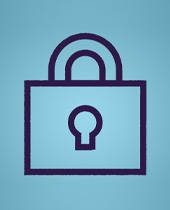The holiday season is here, and BBB and Think Bank partner to warn about two common holiday banking scams and remind consumers that fraudsters aren't taking a vacation – they will continue to use evolving methods to try to steal your money, personal information, and holiday spirit.
Think Bank is a community bank headquartered in Rochester, Minnesota, with full-service offices in Rochester, Apple Valley, Eagan, and Edina. They work to protect customers every day from impersonation and payment app scams that trick people into sharing their personal information.
"Unfortunately, there is always an uptick in fraud attempts on bank customers during the holiday season," said Scott Hoss, vice president of business banking at Think Bank. "Many people are in a hurry and distracted this time of year, which makes them more likely to fall for a bank impersonation scam. We encourage people to be suspicious of any phone call, text, or email they aren't expecting, even if it appears to be coming from their bank."
When in doubt, people turn to institutions they know and trust for important information, which is why BBB partners with organizations like Think Bank.
"BBB works with many strategic partners to track trends and patterns related to scams. We're proud to work with Think Bank to educate consumers and businesses about dangerous scams prevalent during this time of the year," said BBB of Minnesota and North Dakota President and CEO Susan Adams Loyd.
How impersonation scams work:
You receive a text from an unknown number. The text says it is your bank alerting you to fraudulent activity on your card. The text says they will freeze your card if you don't respond. You want to protect your money, so you reply.
The scammer then asks for your personal or account information for verification. Unfortunately, in trying to keep your account safe, you will instead have given the con artists the information they need to steal from you.
Tips to avoid impersonation scams:
- Resist the pressure to act quickly.
- Be wary of solicitations asking you for personal information.
- If something seems fishy, do your own research on BBB.org or directly on the company's website.
How payment app scams work:
You receive a phone call saying your account for a payment app, like Zelle, is in danger of being closed. You are pressured to act quickly to save your account and share information or to pay a fee. You do what they say, but after the call ends, you discover you were conned.
Tips to avoid payment app scams:
- Only send money to friends and family.
- Banks and trusted organizations will never ask or require you to pay a bill through a payment app.
- Don't rely on caller ID – fraudsters can spoof their calls to make it look like it's coming from a real organization.
Check out more resources to stay protected.
- Track and report scams at BBB Scam Tracker.
- Check out Think Bank's security tips on their website.
- BBB launched a consumer education campaign with Amazon to protect the public from impersonation scams.
- The American Bankers Association has a campaign to educate the public called BanksNeverAskThat.
About BBB Scam Tracker
BBB Scam Tracker (BBB.org/ScamTracker) is an online platform that enables consumers and businesses to report attempted and successful acts of fraud. The platform also enables people to search the scam reports to help determine if they are being targeted by a scam.

